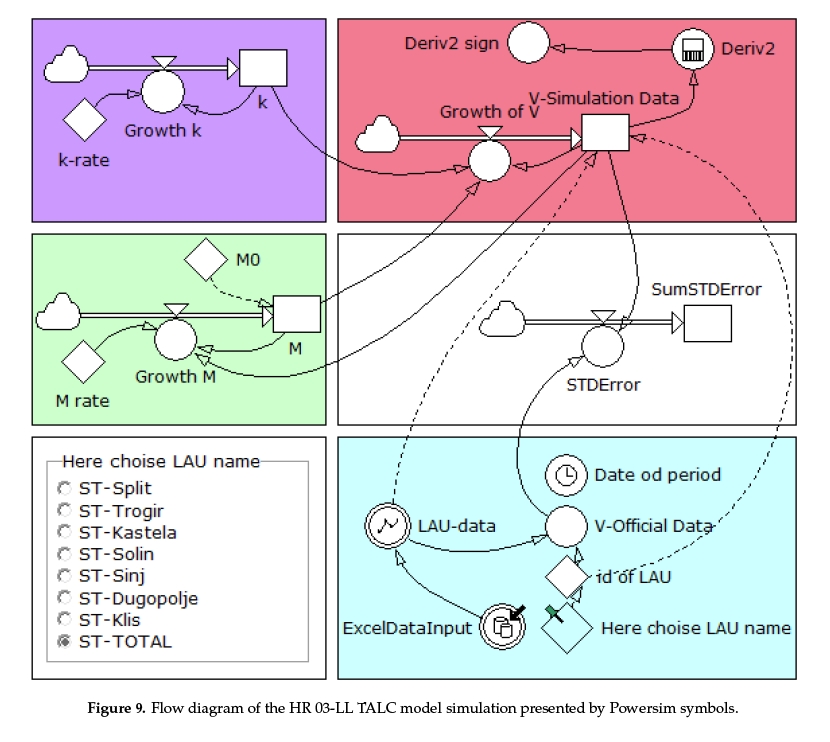Tourism and tourist destinations are researched from many standpoints and by many scientific disciplines. However, most of them have generally taken a reductionist approach, with both tourist destinations and tourism not effectively understood as complex phenomena. In this article authored by Marko Hell and Lidija Petric (Department of Tourism and Economy at the University of Split, Croatia, partner to SmartCulTour project) a system dynamics approach to TALC (tourist destination [area] life cycle) modelling is explored.
The system dynamics applied in this research on modelling a tourist destination (area) life cycle (TALC) contributes to understanding its behavior and the way that information feedback governs the use of feedback loops, delays and stocks and flows. On this basis, a system dynamic three-staged TALC model is conceptualized, with the number of visitors V as an indicator of the carrying capacities’ dynamics and the flow function V(t) to determine the TALC stages. In the first supply-dominance stage, the model indicated that arrivals are growing until the point of inflexion. After this point, arrivals continue growing (but with diminishing growth rates), indicating the beginning of the demand-dominance stage, ending up with the saturation point, i.e., the maximum number of visitors. The simulated TALC system dynamics model was then applied to five EU destinations (Living Labs) to explain their development along the observed period (2007–2019). The analysis revealed that all observed Living Labs reached the second lifecycle stage, with one entered as early as in 2015 and another in 2018. Lifecycle stage durations may significantly differ across the destinations, as do the policies used either to prevent stagnation or to restructure the offer to become more sustainable and resilient.
You can read the full article here: https://www.mdpi.com/2071-1050/13/9/4803/pdf


